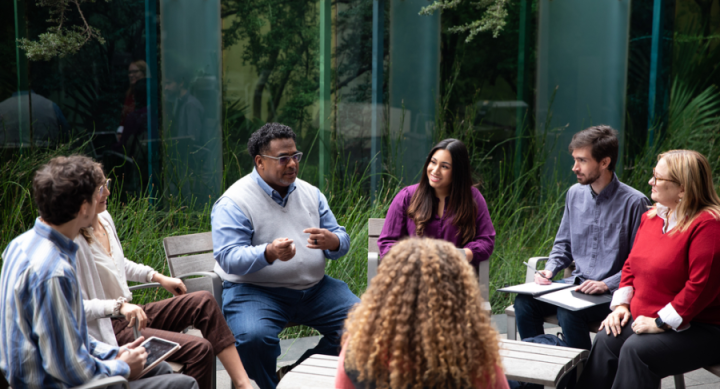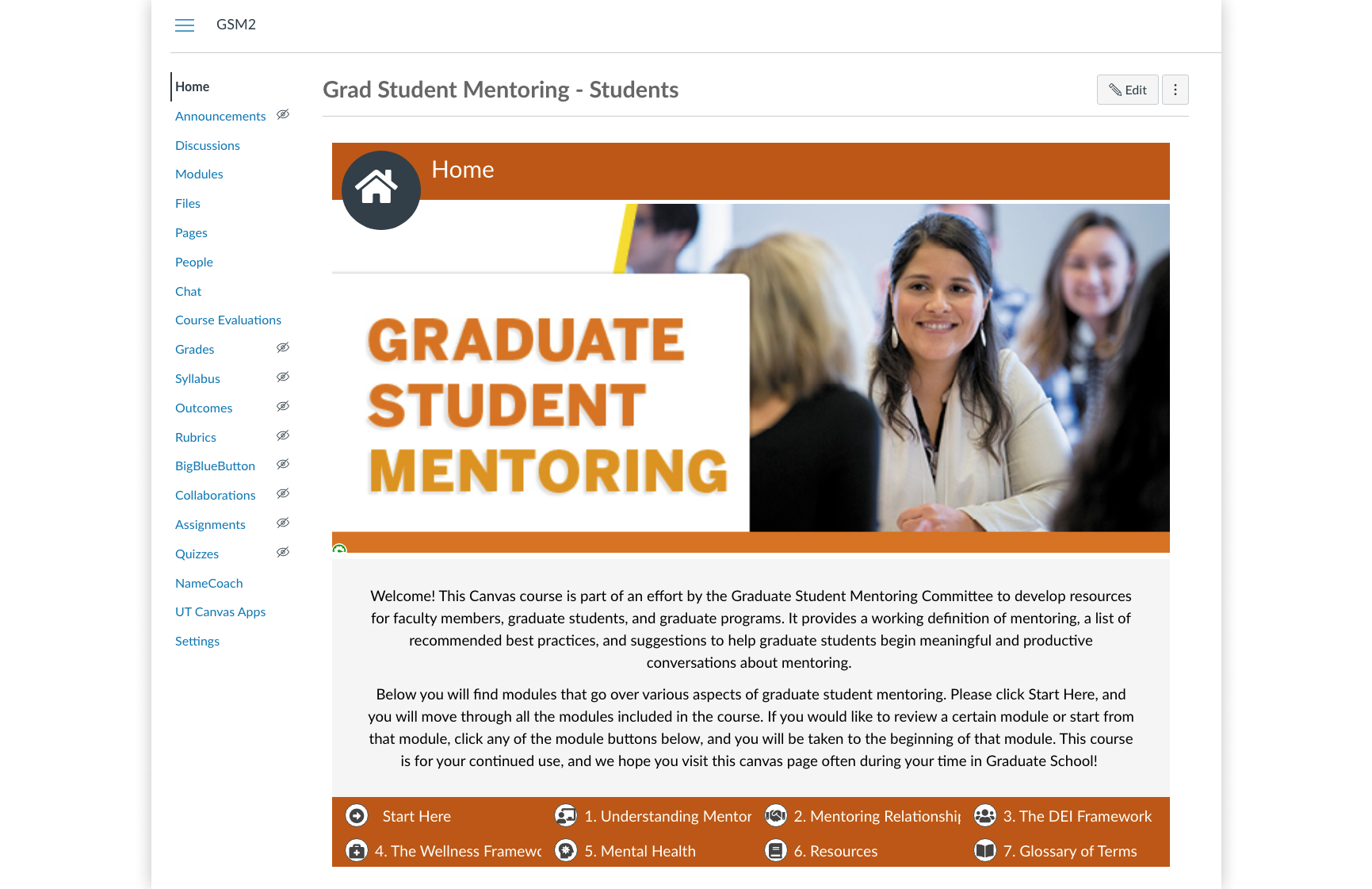
We are pleased to share this guest post written by Vallery Valle.
Are you starting your graduate school journey this year? Are you in the middle of it? Are you in a five-year program or a one-year program? Wherever you are on your journey as a graduate student, mentoring is key to success in your program.
Approaches to mentoring differ across disciplines, especially between the humanities and STEM, but, generally speaking, mentors provide guidance on career paths, networking and professionalization, and work/life balance. Mentors help students navigate rules and norms, and they advocate for students and empower them to act on their own behalf in support of their own interests and rights.
The Graduate Student Mentoring Committee began working in the spring of 2019 to identify mentoring best practices and develop resources for faculty members, graduate students, and graduate programs. The course is the product of several years of work by the Graduate Student Mentoring Committee with support from the Graduate School, the Center for Teaching and Learning and Texas Career Engagement.
In February 2023, the Graduate Student Mentoring Course was launched in Canvas. The self-paced online ungraded course is designed to help all UT graduate students build strong mentoring relationships and develop networks of mentors on campus. It provides a working definition of mentoring, a list of recommended best practices, and suggestions to help graduate students begin meaningful and productive conversations about mentoring. The modules for the course can be taken individually or together. In total, the course takes a few hours to complete, though it is a resource for graduate students to access throughout their time at UT.

The course is split into five modules: Understanding Mentoring, Mentoring Relationships, The DEI Framework, The Wellness Framework, and Mental Health of a Graduate Student. The modules also include testimonials from students like the one below.
To access the Graduate Student Mentoring Course please click here.
For faculty, mentoring often overlaps with advising, research supervising, and teaching, but it is important to distinguish clearly among them. Mentoring is distinct from advising, which focuses on helping students to reach milestones, fulfill degree requirements, and comply with university policies, while supervising research involves teaching specific disciplinary skills. Two common forms of mentoring include faculty to student and peer mentoring. However, the multiple mentor model is the most conducive to student success. With multiple mentors available to them, students have access to different perspectives on scholarship and, more broadly, their professional lives.
It is equally important to be on the same page about the significance of mentoring’s role during each stage of a graduate student’s progress through a program. There isn’t ever a time that a graduate student doesn’t need mentoring.
Within a formal mentoring relationship, communication about expectations should occur early, frequently, and consistently. Mentors and mentees also need to discuss and to establish a clear understanding of the time and effort necessary to build and sustain a quality mentoring relationship.
Transparency and accountability are also important to creating and sustaining ethical mentoring. Mentoring, for example, should not be private; chairs, advisors, and lab supervisors, among others, should be aware of it. Ongoing awareness about the power dynamics in the relationship is also required, as is both attention to the challenges and obstacles faced by students of color, LGBTQ+ students, students with disabilities, first-generation students, and international students.
Mentoring is critical to the development and success of students. It improves the overall graduate school experience and helps students intellectually as well as emotionally, culturally, and socially by providing a support system and reinforcing a graduate student’s sense of belonging and scholarly identity.
We hope that the course will help graduate students, faculty and staff start conversations about mentoring. Additionally, we have a similar mentorship course for faculty in development. The contributors to this course are too numerous to thank, but the list is available in the course. If you have any questions, please contact Jim Cox (jhcox@austin.utexas.edu) or Vallery Valle (vallery.valle@austin.utexas.edu).


